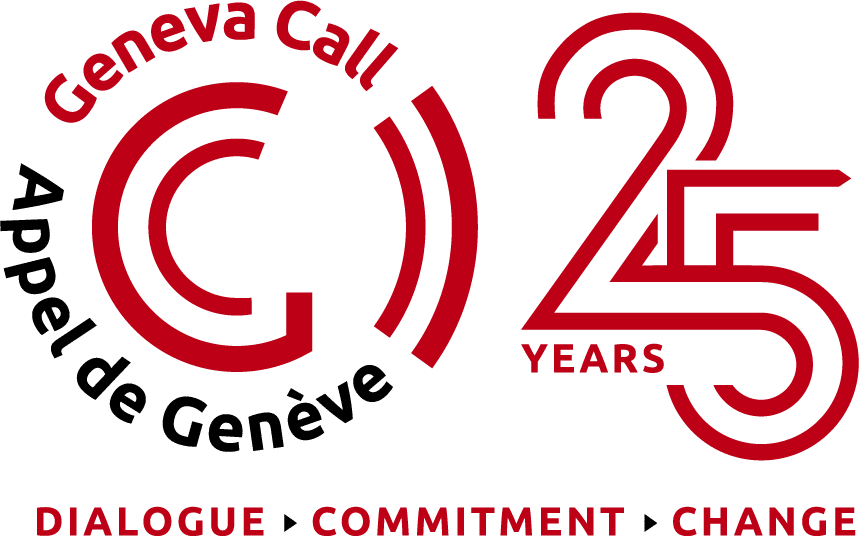New study: education in conflict zones: perspectives of armed non-State actors
14 December 2017
On 5 December 2017, Geneva Call released a report entitled “Armed non-State actors share their policies and practice with regards to education in armed conflict”. This study identifies both the negative and positive practices of armed non-State actors (ANSAs): when they have openly recognized their attacks on education and when, on the contrary, they have taken measures to protect it. The latest data indicate that almost 21.5 million children in conflict-affected countries worldwide are currently unable to attend their primary schools due to attacks against them or their military use. These attacks involve both States and ANSAs.
These findings were drawn from interviews made with ten ANSAs on their policies and practices with regards to education. All the ANSAs are involved in a dialogue with Geneva Call to enhance the protection of children in situations of armed violence and conflict.
Importantly, although all the ANSAs interviewed recognized the importance of education, and have committed in some way or another to protect it, most of them reported that there had been attacks against schools in their areas of control. It also appeared that they facilitate or provide education services themselves, in accordance with their capacities. The lack of resources is a major concern, as is the recognition of their curricula and diplomas. It is therefore important that the international community support the provision of education for children living in territories controlled by ANSAs.
Furthermore, although all the ANSAs interviewed agreed that functioning schools should not be used for military purposes, there were different views on the use of abandoned schools. Almost half of the ANSAs interviewed said that they no longer considered these to be schools and believed that they could legitimately be used for military purposes. One important issue still seems to be the lack of knowledge about the Guidelines for Protecting Schools and Universities from Military Use during Armed Conflict, which Geneva Call has started to promote to dozens of ANSAs.
Although the ANSAs interviewed do not represent the full picture, their responses shed some light on the perspectives of some of them. Further research will be necessary to verify whether their views can be applied to a broader spectrum of actors.
Since 2010, as part of its work on child protection, Geneva Call has engaged more than 50 ANSAs on the protection of education. To date, 26 have signed the Deed of Commitment protecting children in armed conflict and have taken measures to implement its provisions, including on education.
To download the study, please click here.

